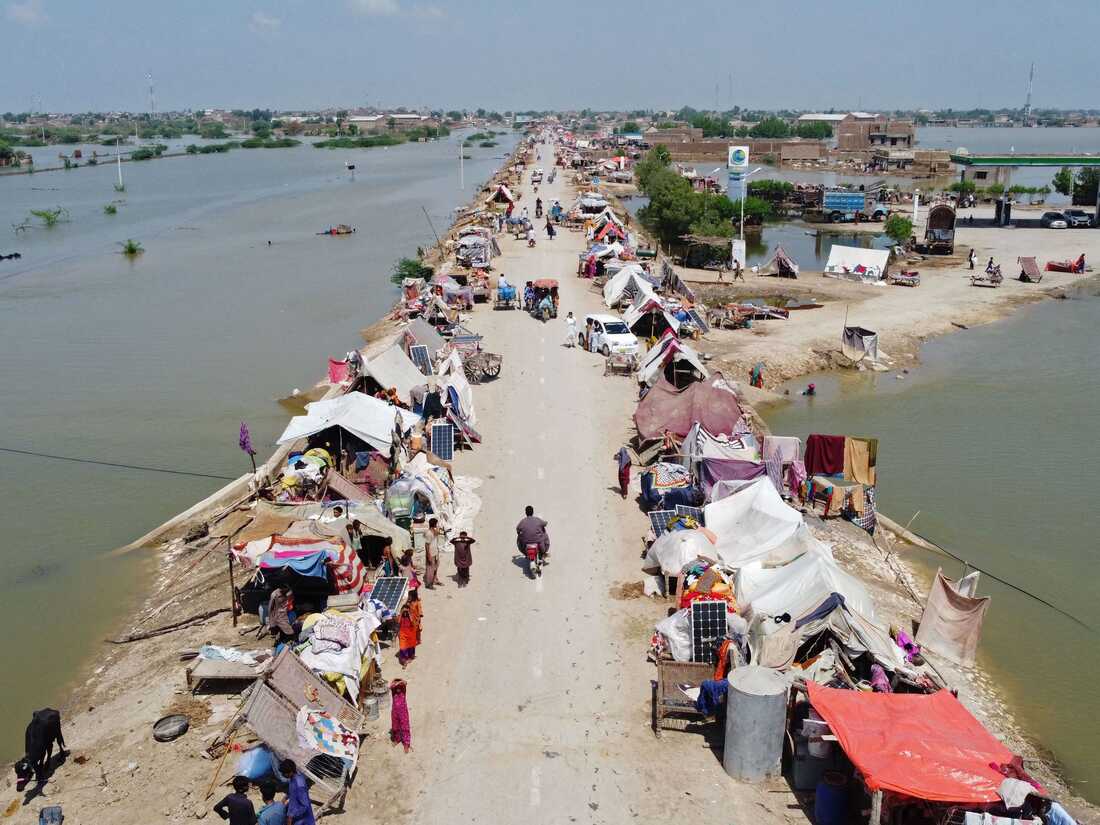Pakistan’s payments could be “suspended at the earliest to free up fiscal space for urgent disaster response and recovery, social protection and development needs in the country, which have been aggravated by the catastrophic floods”, the draft says.
Monitoring Desk
NEW YORK: Pakistan should seek to suspend international debt repayments and restructure loans after devastating floods triggered a humanitarian emergency and imperiled the country’s finances, the Financial Times reported on Friday, citing a UN memorandum.
The draft paper from the UN Development Programme, seen by the Financial Times, proposes that Pakistan negotiate debt relief with creditors to “stem the climate-change-fuelled crisis”.
Pakistan’s largest creditors include Chinese lenders, to whom Islamabad owes more than $30 billion accumulated through Beijing’s Belt and Road Initiative, along with countries such as Japan and France, the World Bank, and commercial bondholders.
The memorandum, which the UNDP will share with Pakistan’s government this week, argues that creditors should consider debt relief so Islamabad can prioritise financing its disaster response over repaying loans.
Pakistan’s payments could be “suspended at the earliest to free up fiscal space for urgent disaster response and recovery, social protection and development needs in the country, which have been aggravated by the catastrophic floods”, the draft says.
It also proposes some restructuring or debt swaps, whereby creditors would forgo repayments in return for Pakistan agreeing to invest in climate change-resilient infrastructure. Pakistan, whose external debts total about $100 billion, was struggling with a balance-of-payments crisis that strained its ability to repay loans even before unprecedented flooding recently.
The country, which has been particularly hard hit by the global surge in commodity prices, received a $1.1 billion bailout from the IMF last month. The disaster has amplified the challenges, affecting more than 30 million people and causing an estimated $30 billion in damage.
The UNDP memo argues Islamabad and its creditors should find a longer-term solution that “would involve lowering Pakistan’s debts down to a sustainable level to enable the government to put people’s needs first”.
The UNDP and Pakistan’s government are also jointly preparing a series of initiatives to attract private climate financing, such as green bonds. The agency is preparing a “technical assistance facility” to help Pakistan raise debt and equity from capital markets to invest in climate change resilience.
While Pakistan has already received some debt relief under a G20 initiative to help countries fight the coronavirus pandemic, the flooding has underscored the financial dangers of climate change. It has also intensified calls for rich polluting nations to take steps to strengthen vulnerable developing countries’ solvency and resilience. Pakistan is among the 10 countries most affected by extreme weather events despite contributing less than 1 percent of global greenhouse gases, according to the UNDP.
A recent study estimated climate change made the flooding in Pakistan up to 50 percent more intense. On a trip to Pakistan this month, UN secretary-general António Guterres advocated debt swaps to alleviate the burden on the country. Pakistan’s Prime Minister Shehbaz Sharif will address the UN General Assembly in New York on Friday, where he and other developing country leaders are expected to call for financial assistance from polluting nations.
(Content courtesy Financial Time)
Copyright © 2021 Independent Pakistan | All rights reserved




